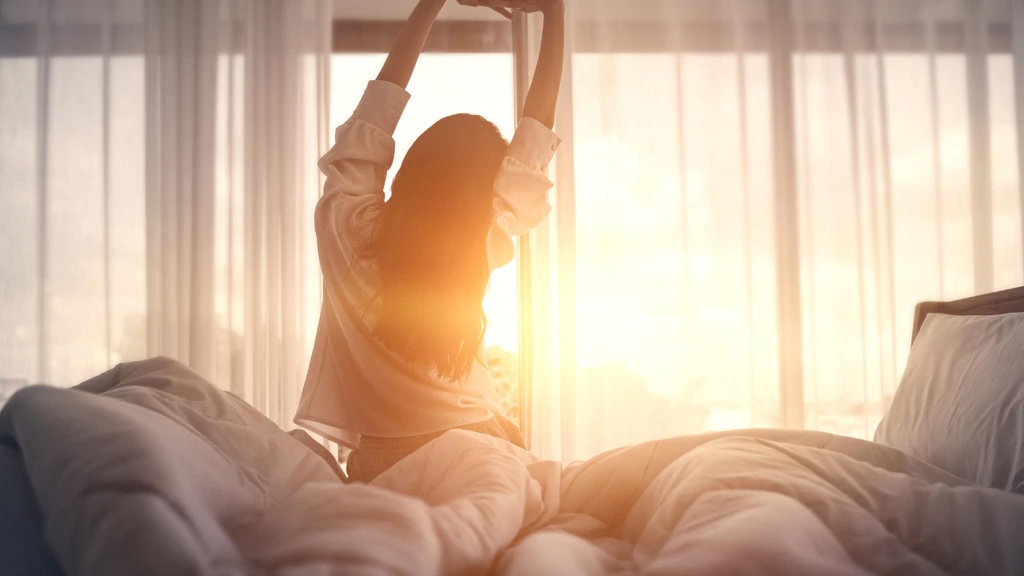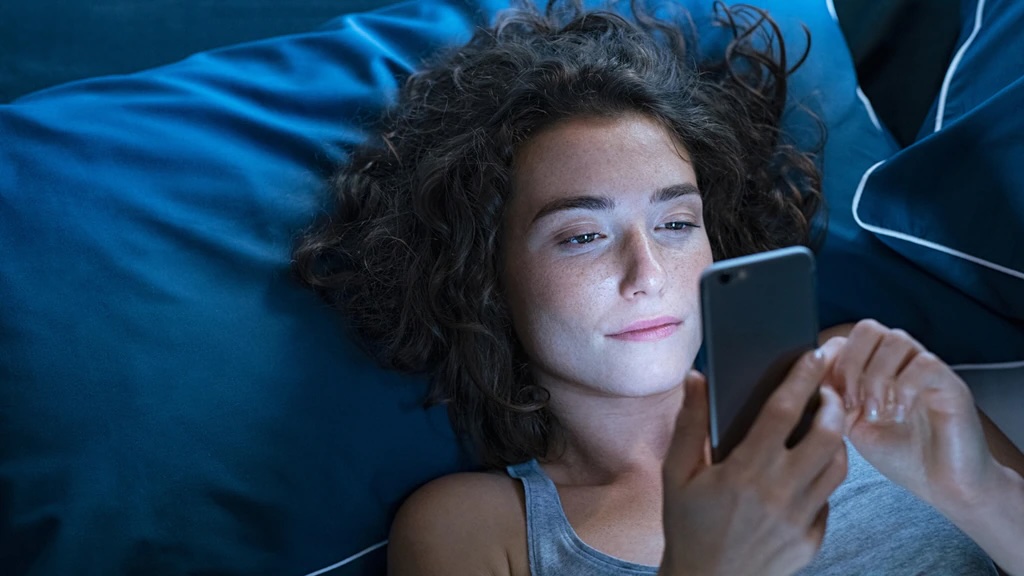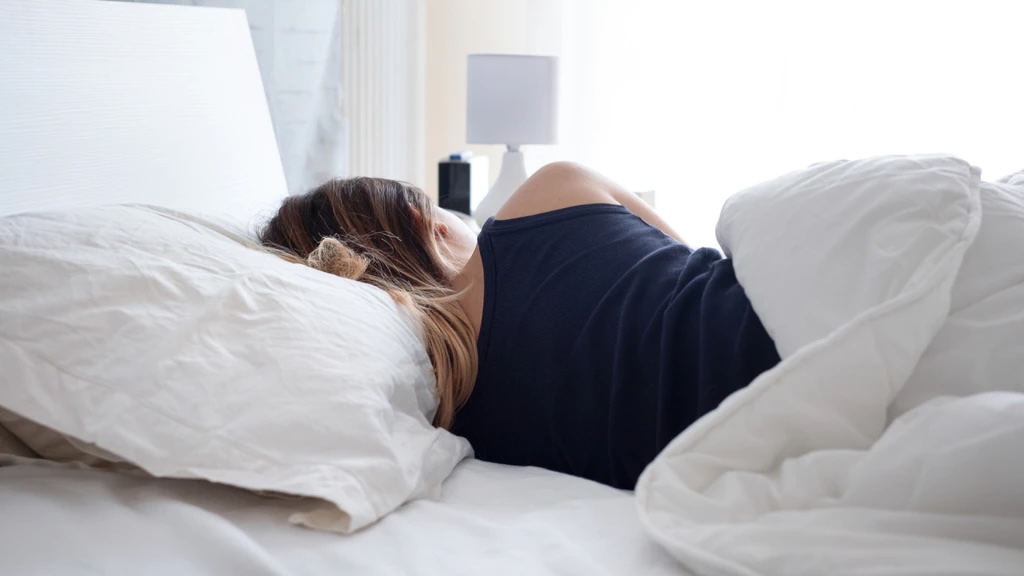
Leave poor quality sleep behind in 2022, with these 22 tips on getting the best night’s sleep you can. Image: Stock
As the year draws to a close, and we hang up our heels after (yet another) Christmas party, many of us are reflecting – myself included. Writing this from the lush rainforest of Ubud, Bali, I want to say thank you for reading, listening and when possible, taking action.
I know it’s not always easy to start or to stay motivated, but the sheer fact that you are reading these articles indicates to me you genuinely care about your sleep and your best self. So kudos to you!
To help you along your way now and well into the New Year, here is a wrap-up of the 22 best sleep tips of 2022. And stay tuned for part two!
How to adjust your routine for the perfect night’s sleep
Block out blue light
I’ve harped on about this for a long time, and it’s still my number one recommendation if you’re trying to sleep better.
Melatonin, our master sleep hormone, is only produced in the absence of this sleep sabotaging light. Further to that, those wearing blue light blocking glasses can fall asleep 78 per cent faster than those not wearing them – so get onto it, stat.
Avoid social media
While blocking out blue light is helpful, this doesn’t mean you can be on your phone just before bed (sorry!) As noted in a 2012 study, using a phone an hour before bed increased the likelihood of taking over an hour to fall asleep by 48 per cent.
Similarly, a 2017 study by University of Pittsburgh School of Medicine found that using social media in the 30 minutes prior to bed increases your likelihood of disturbed sleep by a whopping 62 per cent.
Read a book
Swap social scroll time for reading and you can lower your stress by 68 per cent – according to 2009 research. Put this on your action plan for 2023 – because, alongside better sleep, we all need less stress.

Using social media before bed will decrease sleep quality and increase difficulties falling and staying asleep. Image: Stock
Supplements for solid rest
Take magnesium bi-glycinate, di-glycinate or citrate
Magnesium is a core element of my signature bedtime routine for a reason. The majority of us are deficient in this critical mineral, which can be evident in symptoms such as anxiety and a restless mind.
Don’t just take magnesium
Ashwangadha, omega 3’s, melatonin, even collagen – all have clinical evidence supporting their ability to improve sleep. Speak to your trusted healthcare professional and find which is most suitable for you.
Don’t take sleeping pills
Steer clear of sleeping pills, please! As you will experience following day fatigue, dependence, and withdrawal effects that include insomnia.

Melatonin naturally increases in darkness, so you must trick your body into believing its dark outside. Image: Stock
The ideal bedroom set up for solid shut eye
Get a quality mattress
What’s right for you isn’t necessarily the same as what’s right for your partner or best friend, and that’s ok. Swapping your mattress can improve sleep by 55 per cent, so make sure you have the foundations of sleep right (literally).
Keep it cool – really, really cool
Air con set to a chilly 18 degrees, thermoregulating bedding in a natural fibre such as bamboo, cotton or linen, a maximum thread count of 400 – all will promote a cool core body temperature, which is fundamental for melatonin synthesis.
Try a weighted blanket
Ideal for those with anxiety, a 2018 study by the University of Massachusetts found that 68 per cent of users felt less anxious when using one.

The quality of your mattress is essential for a good night’s sleep. Image: Stock
Alcohol
If you must, drink in the afternoon – not evening
A 2013 paper by Sleep Health Foundation specifies keeping at least four hours between your last drink and bedtime, based on the assumption this will render you alcohol-free by the time you drift off to sleep.
Alcohol, even just one glass, can contribute to nighttime wake ups – particularly at 3, 4 and 5am
In part due to the rebound effect, in part because alcohol suppresses REM sleep. Regardless of the pathway, this leaves you feeling fatigued rather than fresh; so be mindful of what you’re consuming this silly season – please!
Originally featured on Body and Soul
+ show Comments
- Hide Comments
add a comment